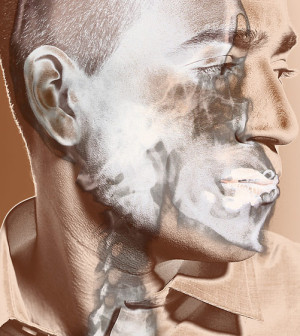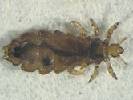- Could Your Grocery Store Meat Be Causing Recurring UTIs?
- Are You Making This Expensive Thermostat Error This Winter?
- Recognizing the Signs of Hypothyroidism
- 10 Strategies to Overcome Insomnia
- Could Artificial Sweeteners Be Aging the Brain Faster?
- Techniques for Soothing Your Nervous System
- Does the Water in Your House Smell Funny? Here’s Why
- Can a Daily Dose of Apple Cider Vinegar Actually Aid Weight Loss?
- 6 Health Beverages That Can Actually Spike Your Blood Sugar
- Treatment Options for Social Anxiety Disorder
Back-to-School Prep Includes Lice Review


With the new school year here, parents need to think about how to deal with head lice, an expert says.
The first sign of head lice may be excessive itching on the nape of the neck and behind the ears, said D’Ann Somerall, an assistant professor at the University of Alabama at Birmingham School of Nursing.
All children with lice and their bedmates should be treated at the same time. If lice are still present after treatment with over-the-counter products, parents should contact their health care provider, she said.
Before using any over-the-counter lice treatments on children age 2 and younger, parents should talk with their pediatrician, Somerall advised.
Home remedies — such as putting mayonnaise, vinegar or petroleum jelly in the hair and covering it with a shower cap — aren’t effective, according to the U.S. Centers for Disease Control and Prevention.
Use a lice comb on your child’s hair, even after you get rid of the lice, Somerall advised.
“It’s best to use a metal comb instead of a plastic one,” she said. “Remember that lice infestation can be an ongoing battle, especially in group settings. There’s no doubt that they can be hard bugs to get rid of, so being persistent and following the directions of the medications used to treat your child’s hair is key.”
If you suspect your child has head lice, check with the school nurse or child care director to see if other children have recently been treated for lice. If you confirm that your child does have head lice, alert school or child care center staff.
A major misconception is that head lice affect only disadvantaged children.
“It has nothing to do with how clean or dirty your home or school may be, or how clean or dirty your kids may be,” Somerall said. “Affluent schools, rural schools, urban schools — anyone from any socioeconomic background can get head lice, no matter how clean their hair or home.”
More information
The U.S. National Library of Medicine has more about head lice.
Source: HealthDay
Copyright © 2026 HealthDay. All rights reserved.










